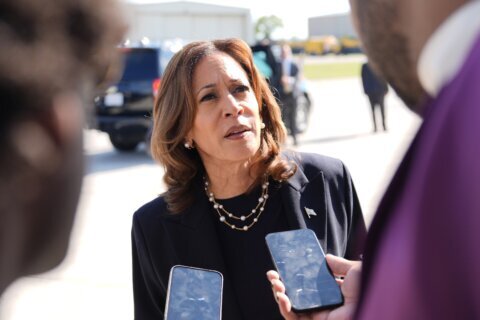Prospective law school students who are LGBTQ have a number of resources to consider and questions to ask when searching for an institution that’s right for them.
Learning about a law school’s curriculum, affinity groups and staff members can help an applicant assess how supportive and welcoming the environment is for LGBTQ students, which can help narrow a school search.
Here are some tips for LGBTQ+ students exploring law schools of interest.
Check for Student Groups
“I would advise a prospective LGBTQ law student to look into whether or not a particular law school that they’re looking at has an LGBTQ affinity group,” says Judi O’Kelley, the LGBTQ+ Bar Association’s chief program officer. Her association has tips and surveys on the climate at several law schools, and has organized affiliate groups at more than 100 schools across the U.S.
Even if a law school doesn’t have an affiliate group of the LGBTQ+ Bar Association, it’s important to note if there are any other student-led LGBTQ+ groups.
“If a school you’re applying to has an LGBTQ+ student group, which is typically called OUTLaw or Lambda Law, reach out to them,” says Siena Hohne, a 22-year-old bisexual law student at the Georgetown University Law Center in Washington, D.C.
[READ:How to Pick the Right Law School]
Current law students are often eager to speak with prospective law students and can provide information on LGBTQ student life, along with information on career services, academics and alumni networks, she says.
“This is especially helpful if you don’t know any law students or lawyers, or if you don’t know anyone who has been to law school recently,” Hohne says. “Plus, being a legal professional is all about networking, and it’s never too early to start building your network.”
Wenxi Lu, a 25-year-old lesbian law student at Indiana University–Bloomington’s Maurer School of Law, says it’s beneficial to connect with a few LGBTQ+ students at law schools you’re considering.
“Speak with current LGBTQ+ students to learn what their experiences are like,” she says. “If both of you feel comfortable, ask them if they have experienced or witnessed bias incidents at school and how the school reacts to bias incidents.”
Lu and Hohne say they are active members of their school’s LGBTQ student groups.
Research the Courses
“Students should look to see whether there are LGBTQ-related courses,” O’Kelley says. “That could be a sexual orientation and gender identity law class or other ways in which the school might be expressing that aspect of legal education in the curriculum.”
Stanford University’s Law School in California offers several LGBTQ courses, such as Gender Identity, Sexual Orientation, and the Law. Harvard Law School in Massachusetts has numerous courses relating to LGBTQ issues, including Transgender Law & Politics.
“Courses specifically focusing on sexual orientation and gender identity law are particularly important today as state legislatures continue attacking LGBTQ+ rights,” Hohne says.
For example, in March 2022, Florida Gov. Ron Desantis signed into law House Bill 1557, titled the “Parental Rights in Education” bill, which along with other provisions bans classroom instruction about sexual orientation and gender identity in kindergarten through third grade. Some critics refer to it as “Don’t Say ‘Gay’ Bill.”
Georgetown Law offers 10 courses this semester that involve LGBTQ issues, according to Merrie Leininger, the school’s director of media relations. “We are still developing the course schedule for the 2023-2024 academic year,” she says, “and as always, we will be mindful of creating educational opportunities that ask our students to critically think about justice, to examine the law’s claim to neutrality, and its effects on traditionally marginalized groups.”
[READ:How Law School Applicants Can Prepare for a Social Justice Career]
It’s important that future lawyers have an educational background in LGBTQ law in order to better represent their clients, Hohne says.
“Schools that don’t offer courses focused on this kind of law send a message to their LGBTQ+ students that they are not significant enough to be included in the curriculum,” she says, “and, perhaps more alarmingly, put their students who will represent their LGBTQ+ clients at a disadvantage.”
Maurer law school at IU has classes in gender and law and family law that touch on LGBTQ matters.
“We should have more, especially nowadays, when a lot of anti-LGBTQ+ bills are pending,” Lu says. “It is important for LGBTQ+ students to learn about laws that affect them and for non-LGBTQ+ students to learn about the community and how to be better allies, if they so wish.”
Check the Staff
Not only is it important for law schools to have LGBTQ-related classes, but professors teaching those classes should be diverse — and it helps if they’re also in the LGBTQ community, O’Kelley says.
“Students should look at the employment data to see how many minority professors the school has,” Lu says, adding that it can help to do research on the city where the school is located to gauge how friendly it is to LGBTQ people.
O’Kelley says it’s a good sign if a school has LGBTQ faculty and highlights and celebrates them, “because LGBTQ faculty often serve as a really important mentorship opportunity and an avenue for support for LGBTQ students. And it’s helpful to see that the school has that representation, ideally on faculty, but also potentially on administration or staff.”
Note if the Application Is Inclusive
The majority of law schools now have some option for students to indicate their sexual orientation and gender identity on an application, according to O’Kelley, which was a significant change in recent years.
“Identities are being understood to be important,” she says. “Schools are often collecting data on that, which is good, and that’s helping them understand that they need to be meeting the specific needs of the LGBTQ+ community.”
[READ:Advice for LGBTQ Law School Applicants]
However, many don’t allow for further detail.
Most of the law schools Lu applied to simply had a drop-down menu item to indicate whether she was LGBTQ or not. Hohne had a similar experience. Both said they appreciated having the option to show they are in the LGBTQ community.
While each law school establishes its own admissions process, the Law School Admission Council offers guidance on equity and inclusion, says Javier Maymí-Pérez, LSAC’s director of communications.
“Law school admission offices should give equal opportunity in admission considerations to applicants who are members of underrepresented groups in the legal profession,” the guidance reads. “These may include applicants from LGBTQ, ethnic, and racial backgrounds; applicants with disabilities; applicants who may not have enjoyed adequate opportunities to develop or demonstrate their potential for academic achievement; and those who would not otherwise be meaningfully represented in the entering class or legal profession.”
If there’s no space on a law school application to detail specifics about sexual orientation or gender identity, that can be done on the law school application’s diversity statement.
“Spend time on your diversity statement, which can help the admission officer know you better and can be a great supplement to your personal statement,” Lu says. “Every LGBTQ+ student experiences things differently, so you should reflect on yourself and your environment to see how your identity affects your life and perception.”
Lu says it’s also crucial not to minimize or exaggerate experiences in the personal and diversity statements.
Don’t be afraid to be yourself in your application, experts say. And if a school does not like you as who you are, Lu says, it probably isn’t the best idea to spend three years there.
More from U.S. News
Advice for Aspiring Lawyers About Diversity in Law School
How to Choose a Law School Specialization
LGBTQ Health Issues: How to Choose a Medical School at the Forefront
Advice for LGBTQ Law School Applicants originally appeared on usnews.com







